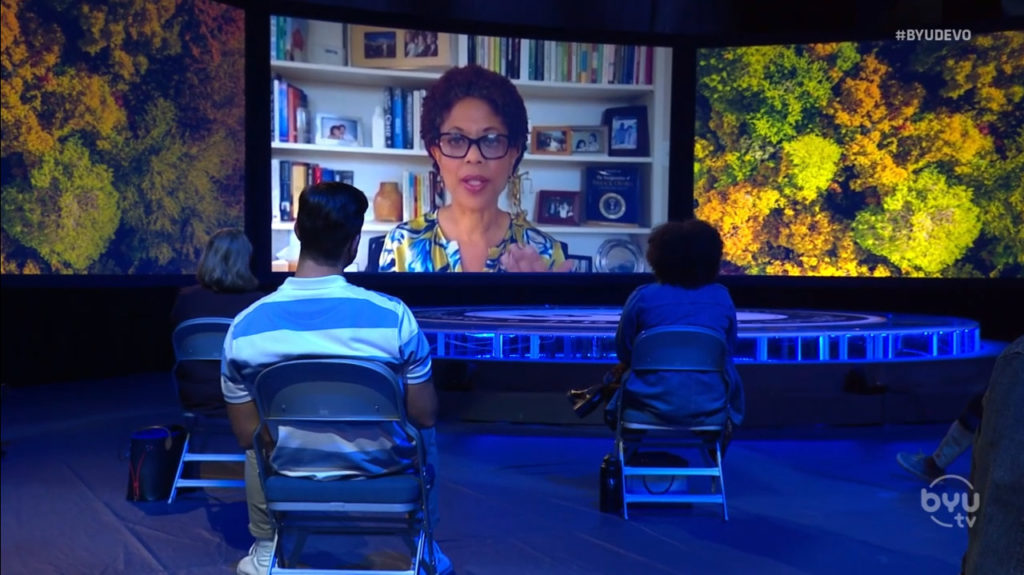
Melody Barnes, a lawyer and political advisor at the University of Virginia, addressed the need for everyone to have access to education during her BYU forum address Sept. 29.
“To be educated assures us of nothing more and nothing less than the ability to engage life’s most complex challenges, to build and strengthen our body politic and our democracy and to live a life of meaning,” she said.
Speaking virtually from Virginia, Barnes focused on the role of education in aiding with participation in democracy, minorities being lifted through learning and the intersection of academia and faith.
She stressed the importance of learning how the American government works. “It is virtually impossible to hold elected officials accountable if you don’t understand civics, if you don’t understand how our country works.”
Throughout American history, marginalized groups have been excluded from educational opportunities. Though some of those problems have been or are being resolved, Barnes said these topics aren’t spoken of enough.
“We are all undereducated because we fail to tell the complete American story. We fail to conclude in our curriculum that which is painful,” she said.

Other marginalized groups also fought for a chance to advance from situations of deprivation. It took many years for women to access their societal rights, including their right to education.
“Education and full citizenship were bound together, and were out of reach for women who were relegated to a low run on the ladder on American society,” Barnes said. “The difference in education for girls and boys, young women and young men, was predicated on the lives imagined for women and men, including their societal roles and their lives as citizens.”
Barnes also said education is important for people of faith. While working in the White House Domestic Policy Council during the Obama Administration, Barnes worked alongside Dr. Francis Collins, head of the National Institutes of Health. When Collins was working as a resident in a hospital, a conversation with a Methodist pastor changed his view on science and faith.
“Based on his own journey from atheism to Christianity, Dr. Collins founded the organization BioLogos, which has as its mission to show that science and faith are not in conflict with one another,” Barnes said.
Combining education and religion has been a factor in the studies and discoveries of more than just Collins. “About 40% of scientists deploy the craft of their discipline and a deepening examination of faith to gain a more robust understanding of the world and that which exists beyond,” Barnes said.
“The world has a great deal to teach us, and we have to be open to those lessons if we are to be truly educated,” Barnes said.




